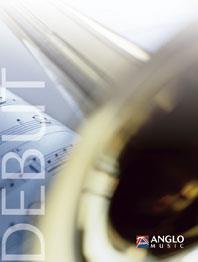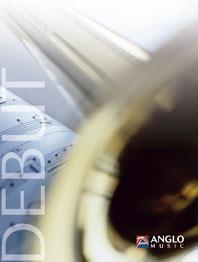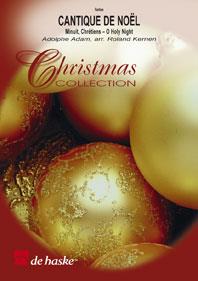Adolphe Charles Adam (1803 - 1856)
 France
France
 France
FranceAdolphe Charles Adam (July 24, 1803 ? May 3, 1856) was a French composer and music critic. He is best known today for his ballets Giselle (1844) and Le Corsaire (1856, his last work), his opera Les Toréadors]] (AKA Le toréador ou L'accord parfait) (1849), and his Christmas carol O Holy Night (1847).
Adam was born in Paris where his father Louis Adam (1758-1848) (born Johann Ludwig Adam in Muttersholtz, Alsace), a pianist and composer was professor at the Paris Conservatoire. His mother was ... (Read all)
Source : Wikipedia
Adam was born in Paris where his father Louis Adam (1758-1848) (born Johann Ludwig Adam in Muttersholtz, Alsace), a pianist and composer was professor at the Paris Conservatoire. His mother was ... (Read all)
Source : Wikipedia
FREE SHEET MUSIC
O Holy Night (Cantique de Noël)
Adolphe Charles Adam
Clarinet, Piano or Organ / 1 PDF / 2 MP3 Play-along
Minuit, Chretiens (O Holy Night) (Cantique de Noël (Christmas carol))
Adolphe Charles Adam
Flute or Violin and Guitar / 1 PDF
O Holy Night
Adolphe Charles Adam
Choir SATB, Soloist and Keyboard (Organ or Piano) / 2 PDF / 8 MP3 Play-along
O Holy night (french lyrics) (Cantique de Noël)
Adolphe Charles Adam
Choir SATB, Piano or Organ / 1 PDF / 1 MP3
"O Holy Night" In C-flat Major for Flute & Harp
Adolphe Charles Adam
Flute and Harp / 2 PDF / 3 MP3 Play-along
O holy night (bluesy version)
Adolphe Charles Adam
Violin, 2 Flutes, 5 Saxophones, 2 Trumpets, 2 Trombones, Piano and Upright Bass / 1 PDF / 1 MP3 / MIDI
O Holy Night (Cantique de Noël)
Adolphe Charles Adam
Alto Saxophone or Clarinet in Eb, Piano or Organ / 1 PDF / 2 MP3 Play-along
O Holy Night (Cantique de Noël)
Adolphe Charles Adam
Trumpet in Bb or Bugle, Piano or Organ / 1 PDF / 2 MP3 Play-along
Search
1 9 17 25 33 More results ⇒ 3,131
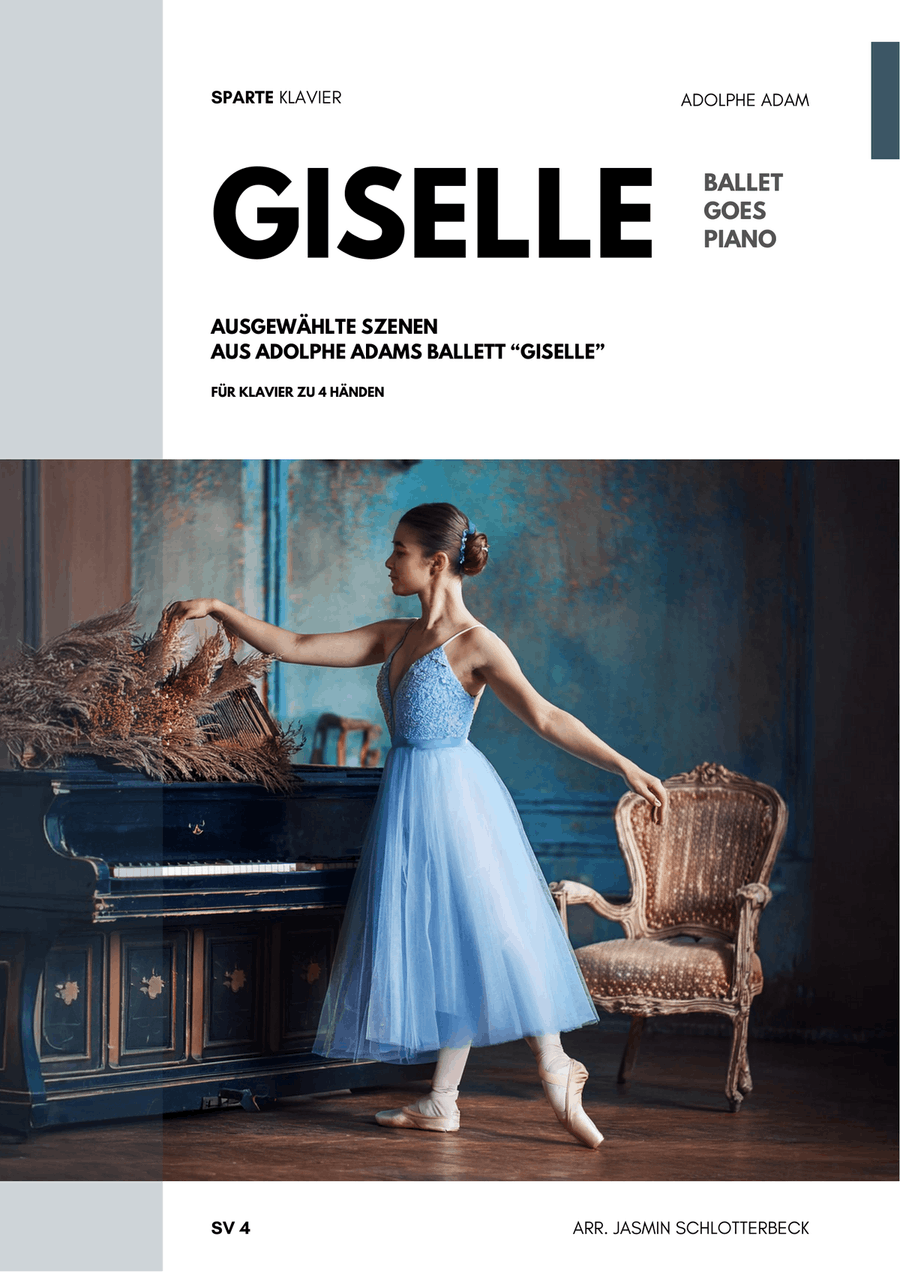
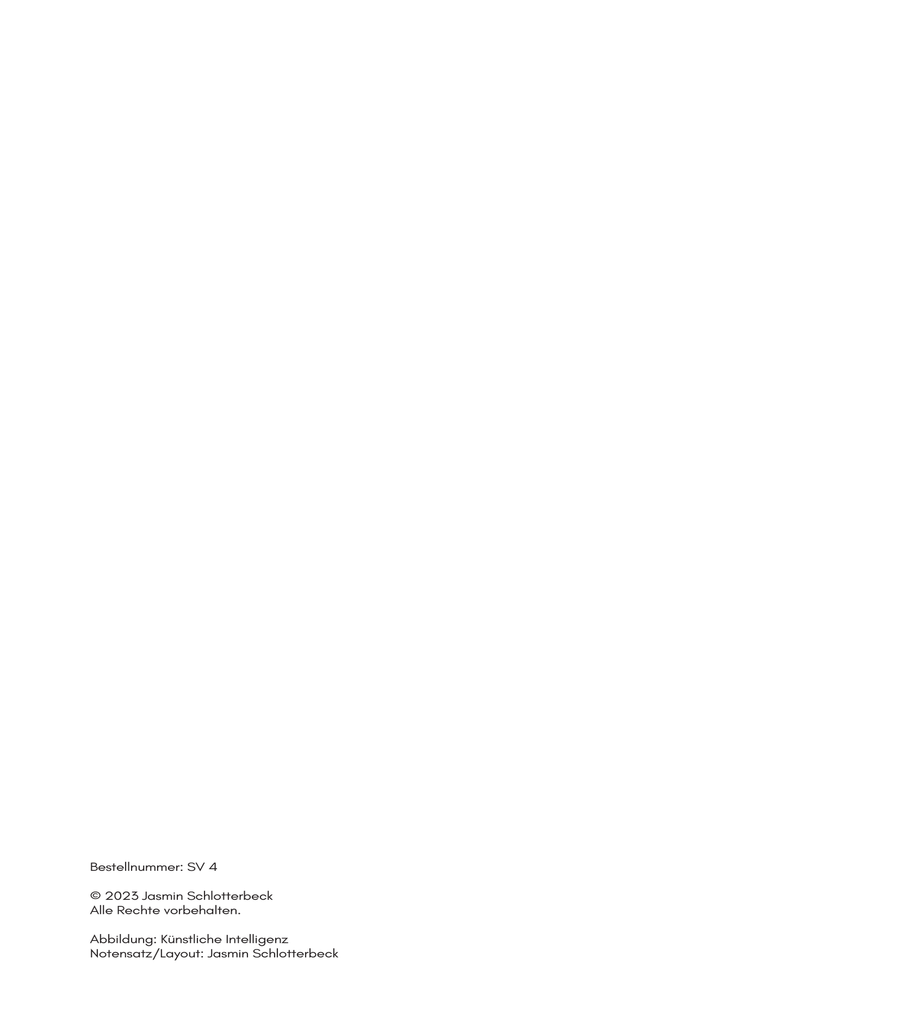
 Giselle - Selected Scenes from Adolphe Adams ballet for piano 4 hands
Giselle - Selected Scenes from Adolphe Adams ballet for piano 4 hands
$7.45 #1 Piano, 4 hands #Adolphe-Charles Adam #Jasmin Schlotterbeck #Jasmin Schlotterbeck
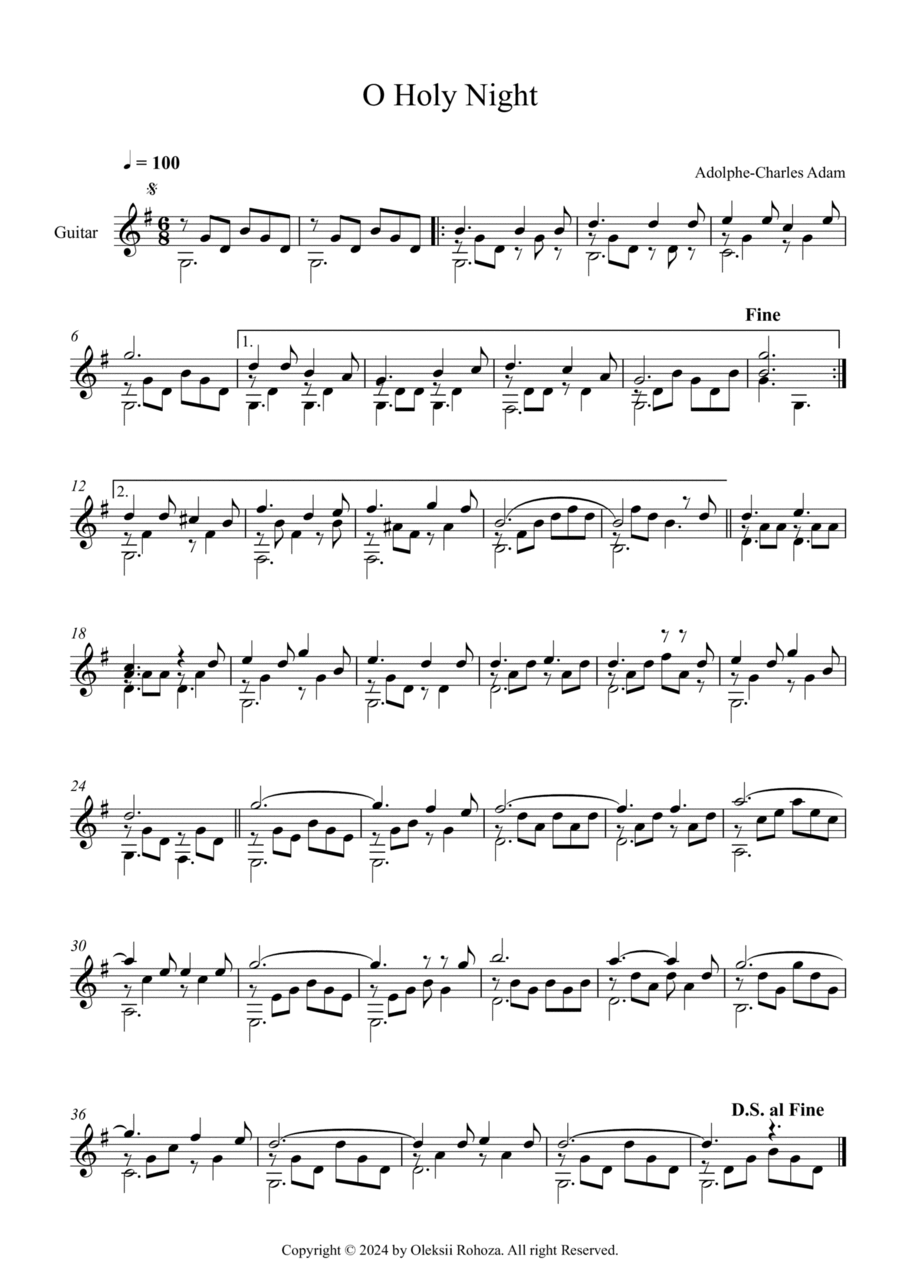
![]()
 O Holy Night - Adolphe-Charles Adam (Guitar)
O Holy Night - Adolphe-Charles Adam (Guitar)
$5.99 #Adolphe-Charles Adam #Oleksii Rohoza #Oleksii Rohoza
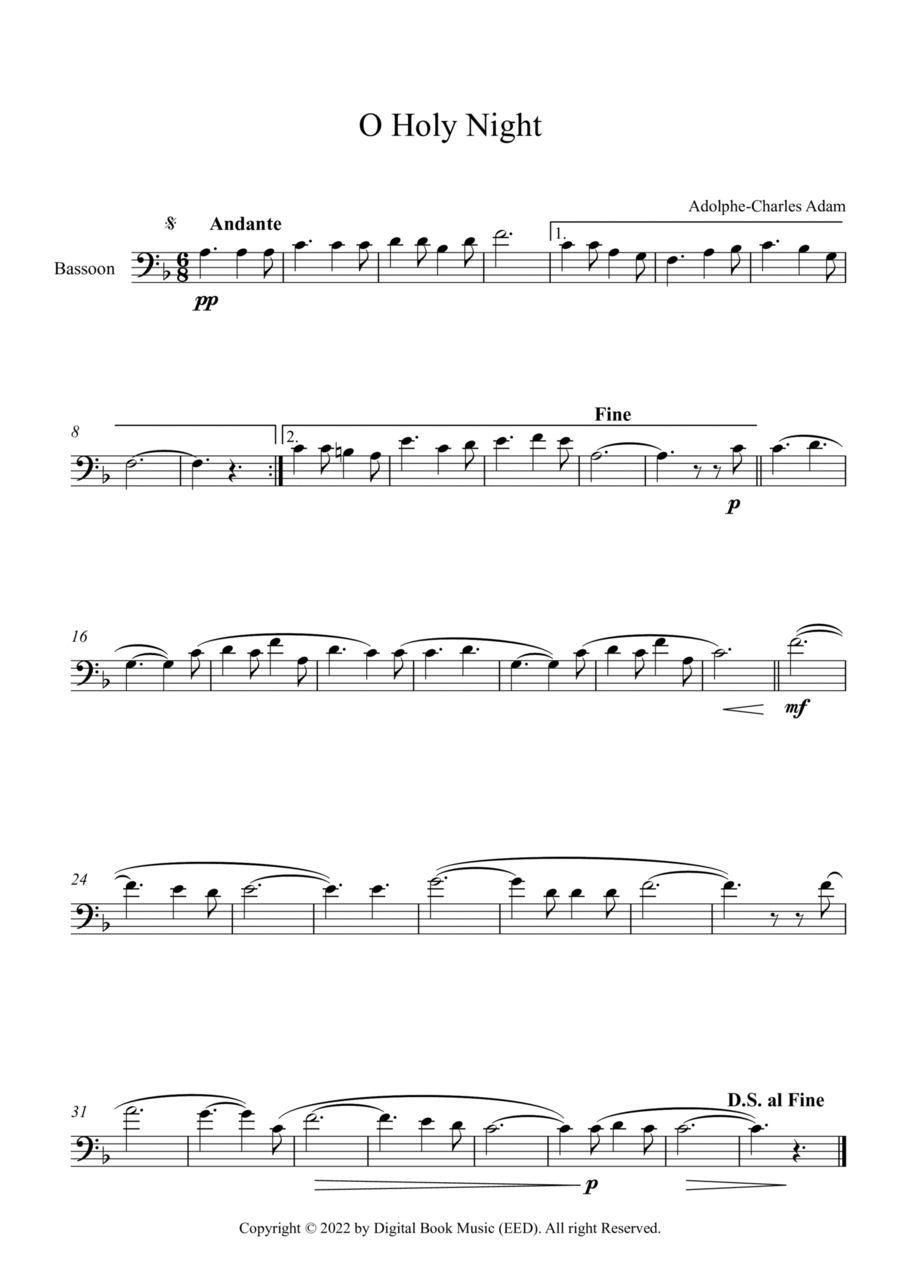

 O Holy Night - Adolphe-Charles Adam (Bassoon)
O Holy Night - Adolphe-Charles Adam (Bassoon)
$2.99 #Bassoon #Adolphe-Charles Adam #Digital Book Music #Digital Book Music
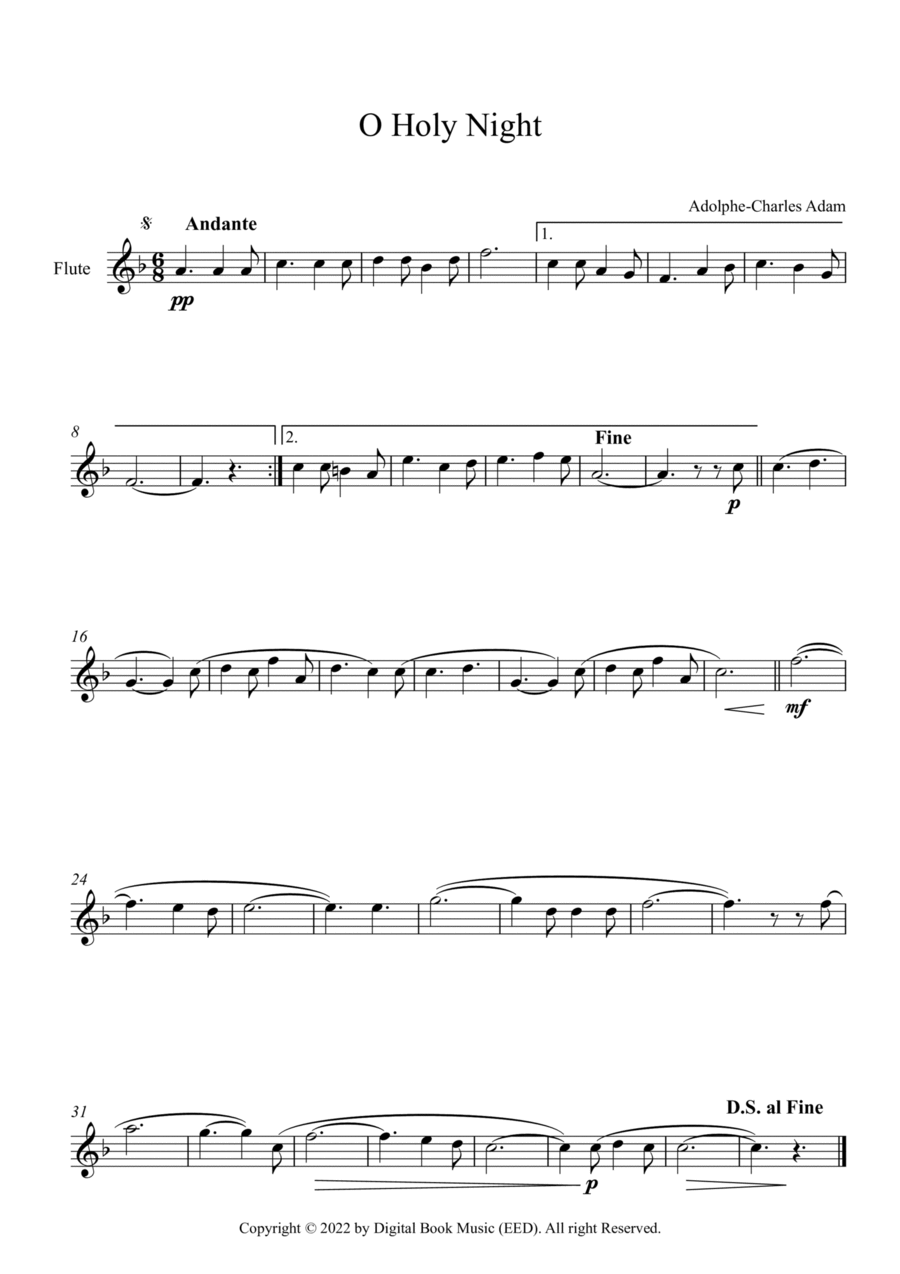

 O Holy Night - Adolphe-Charles Adam (Flute)
O Holy Night - Adolphe-Charles Adam (Flute)
$2.99 #Flute #Adolphe-Charles Adam #Digital Book Music #Digital Book Music
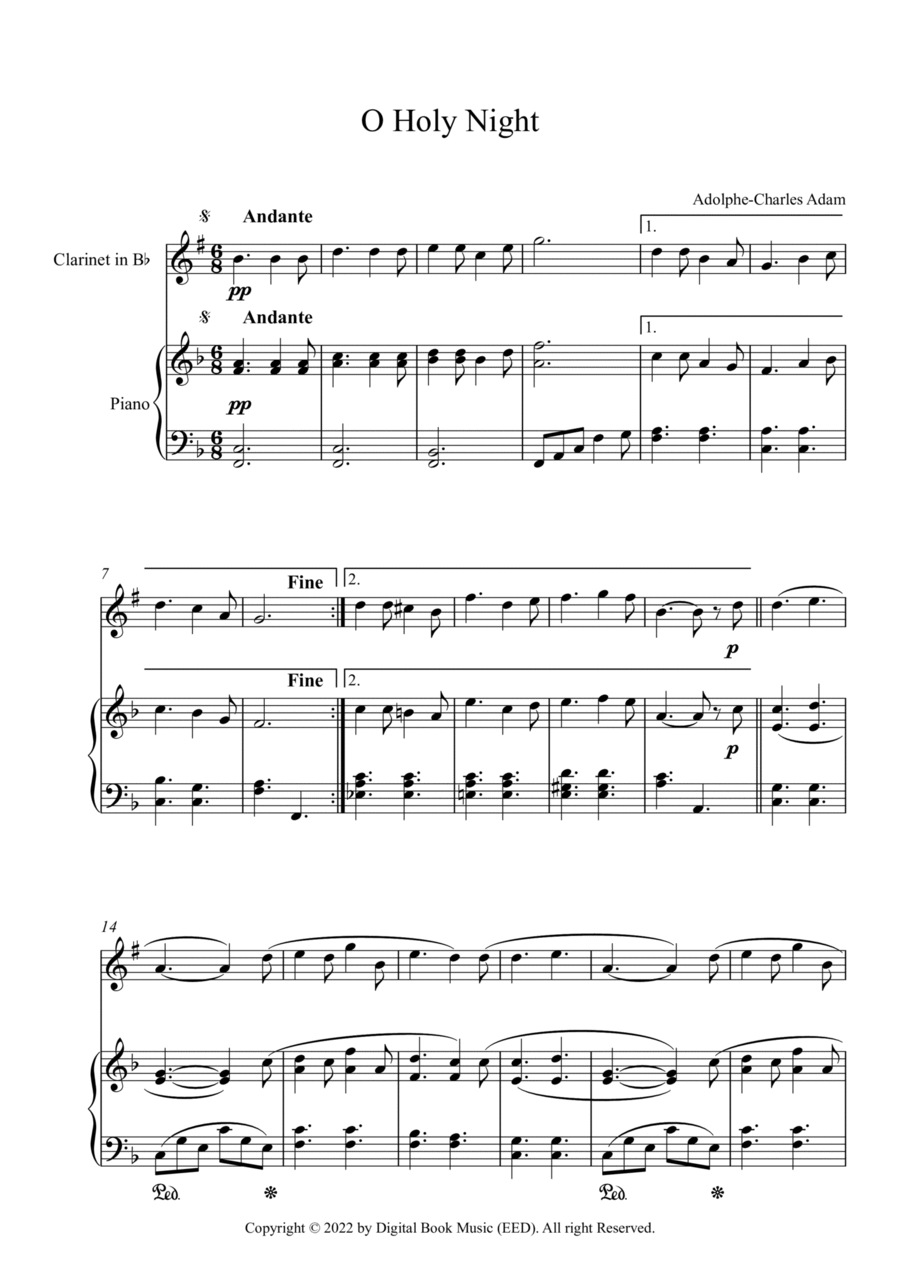

 O Holy Night - Adolphe-Charles Adam (Clarinet + Piano)
O Holy Night - Adolphe-Charles Adam (Clarinet + Piano)
$4.99 #Clarinet and Piano #Adolphe-Charles Adam #Digital Book Music #Digital Book Music
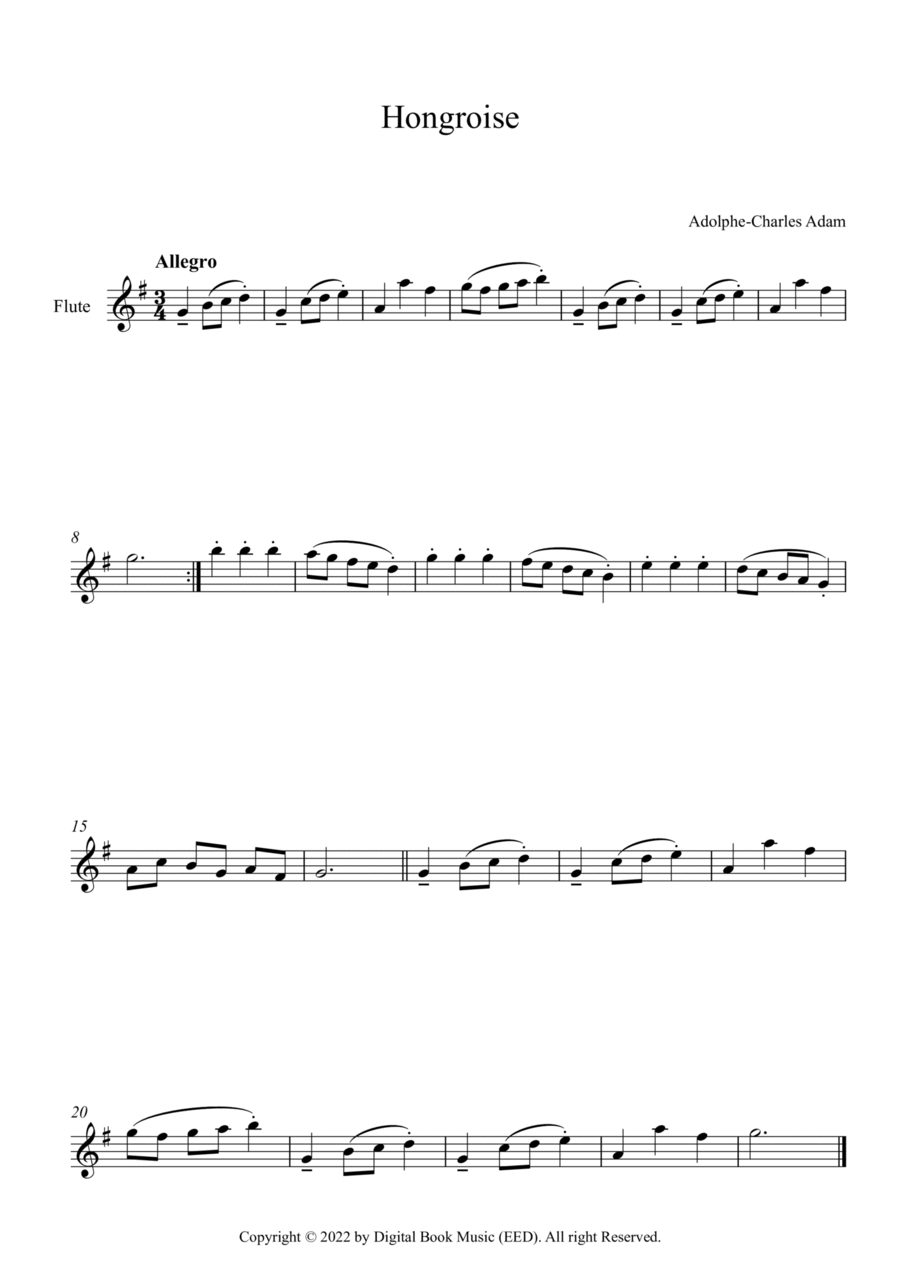

 Hongroise - Adolphe-Charles Adam (Flute)
Hongroise - Adolphe-Charles Adam (Flute)
$2.99 #Flute #Adolphe-Charles Adam #Digital Book Music #Digital Book Music


 O Holy Night - Adolphe-Charles Adam (English Horn)
O Holy Night - Adolphe-Charles Adam (English Horn)
$2.99 #English Horn #Adolphe-Charles Adam #Digital Book Music #Digital Book Music
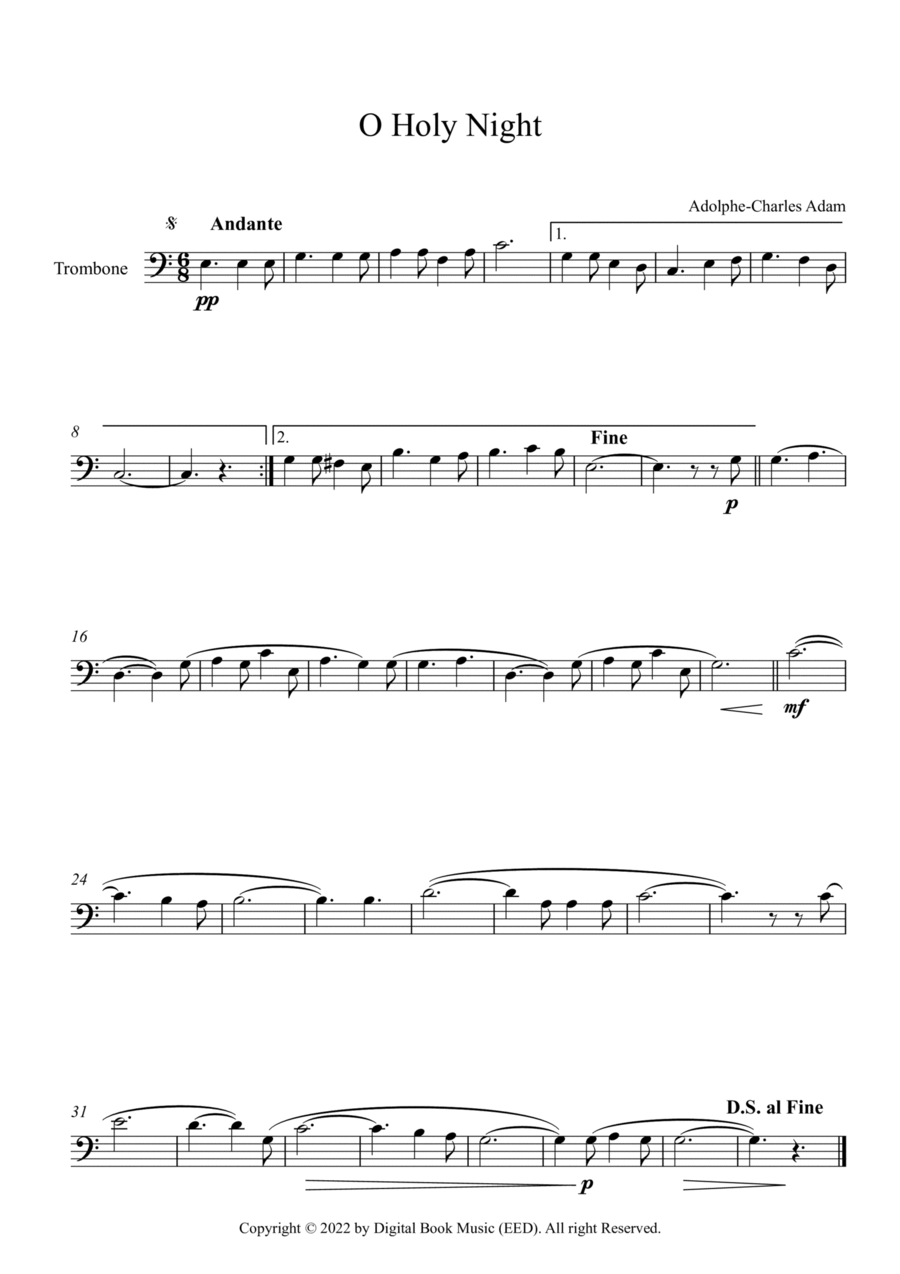

 O Holy Night - Adolphe-Charles Adam (Trombone)
O Holy Night - Adolphe-Charles Adam (Trombone)
$2.99 #Trombone #Adolphe-Charles Adam #Digital Book Music #Digital Book Music
More digital shop results ⇒
Giselle - Selected Scenes from Adolphe Adams ballet for piano 4 hands



$7.45 #1 Piano, 4 hands #Adolphe-Charles Adam #Jasmin Schlotterbeck #Jasmin Schlotterbeck
O Holy Night - Adolphe-Charles Adam (Guitar)


$5.99 #Adolphe-Charles Adam #Oleksii Rohoza #Oleksii Rohoza
O Holy Night - Adolphe-Charles Adam (Bassoon)



$2.99 #Bassoon #Adolphe-Charles Adam #Digital Book Music #Digital Book Music
O Holy Night - Adolphe-Charles Adam (Flute)



$2.99 #Flute #Adolphe-Charles Adam #Digital Book Music #Digital Book Music
O Holy Night - Adolphe-Charles Adam (Clarinet + Piano)



$4.99 #Clarinet and Piano #Adolphe-Charles Adam #Digital Book Music #Digital Book Music
Hongroise - Adolphe-Charles Adam (Flute)



$2.99 #Flute #Adolphe-Charles Adam #Digital Book Music #Digital Book Music
O Holy Night - Adolphe-Charles Adam (English Horn)



$2.99 #English Horn #Adolphe-Charles Adam #Digital Book Music #Digital Book Music
O Holy Night - Adolphe-Charles Adam (Trombone)



$2.99 #Trombone #Adolphe-Charles Adam #Digital Book Music #Digital Book Music
More digital shop results ⇒
| |||||||||||||||||||||||||||||||||||








































